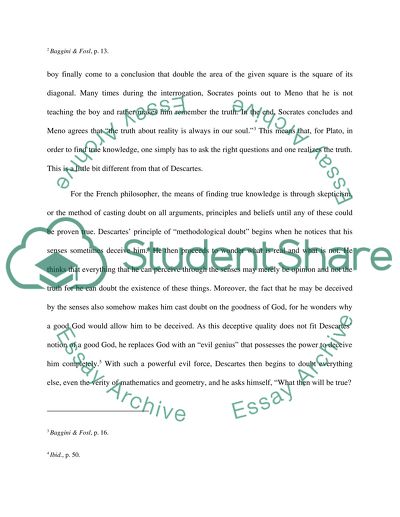Distinguish Knowledge from Opinion Essay Example | Topics and Well Written Essays - 1250 words. Retrieved from https://studentshare.org/philosophy/1432979-distinguish-knowledge-from-opinion
Distinguish Knowledge from Opinion Essay Example | Topics and Well Written Essays - 1250 Words. https://studentshare.org/philosophy/1432979-distinguish-knowledge-from-opinion.


